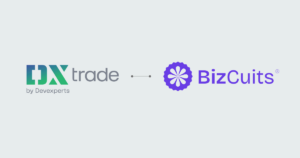Bitpay to pay up: $507,375 for 2,102 violations of sanctions programs
OFAC determined that BitPay failed to exercise due caution and did not voluntarily disclose the 2,102 sanctions violations. BitPay agreed to pay $507,375 to settle with the Treasury Department.

The Treasury Department’s Office of Foreign Asset Control (OFAC) has taken action against BitPay, which has engaged in 2,102 violations of sanctions programs in the Crimea region of the Ukraine, Cuba, North Korea, Iran, Sudan, and Syria.
The Bitcoin payments service processed transactions totaling approximately $129,000 worth of digital currency even though BitPay had location information, including Internet Protocol (IP) addresses and other location data about those persons.
Between approximately June 10, 2013 and September 16, 2018, BitPay received digital currency payments from its merchant customers on behalf of the merchants’ buyers who were located in sanctioned jurisdictions. The service then converted the digital currency to fiat currency and relayed that currency to its merchants.
BitPay did screen its merchant customers against OFAC’s SDN List and conducted due diligence, but the firm’s transaction review process failed to review and analyze buyer identification and location data. This has resulted in the ability of people in sanctioned countries being able to make purchases from merchants in the United States and elsewhere using digital currency.
OFAC determined that BitPay failed to exercise due caution and did not voluntarily disclose the sanctions violations.
BitPay implemented sanctions compliance controls in 2013 and trained employees for sanctions prohibitions involving Cuba, Iran, Syria, Sudan, North Korea, and Crimea, as well as sanctioned individuals and entities
After the 2,102 violations of sanctions programs, BitPay blocked IP addresses that originate in Cuba, Iran, North Korea, and Syria from connecting to the BitPay website or from viewing any instructions on how to make payment. Other due diligence steps include checking physical and email addresses of merchants’ buyers, and a “BitPay ID”.
BitPay agreed to pay $507,375 to settle violations of the various OFAC sanctions programs.
Enforcement activities on digital currency companies are likely to increase. “Companies that facilitate or engage in online commerce or process transactions using digital currency are responsible for ensuring that they do not engage in unauthorized transactions prohibited by OFAC sanctions, such as dealings with blocked persons or property, or engaging in prohibited trade or investment-related transactions”, OFAC stated.
New York takes action against Tether and Bitfinex
In New York, Attorney General Letitia James has doubled down in its rhetoric against fraudulent and deceptive cryptocurrency trading platforms and has ordered Bitfinex and Tether to shut down their operation in New York.
Tether is supposed to always have the same real-dollar value, backed one-to-one by U.S. dollars in reserve, but iFinex — the operator of Bitfinex — and Tether have allegedly made false statements about the backing of the “tether” stablecoin. They lied about the movement of hundreds of millions of dollars between the two companies to cover up the truth about massive losses by Bitfinex.
The companies will have to disburse $18.5 million in penalties, in addition to take a number of steps to increase transparency. In the meantime, they will cease any further trading activity with New Yorkers.
“Bitfinex and Tether recklessly and unlawfully covered-up massive financial losses to keep their scheme going and protect their bottom lines. Tether’s claims that its virtual currency was fully backed by U.S. dollars at all times was a lie”, said Attorney General James.
“These companies obscured the true risk investors faced and were operated by unlicensed and unregulated individuals and entities dealing in the darkest corners of the financial system. This resolution makes clear that those trading virtual currencies in New York state who think they can avoid our laws cannot and will not. Last week, we sued to shut down Coinseed for its fraudulent conduct. This week, we’re taking action to end Bitfinex and Tether’s illegal activities in New York. These legal actions send a clear message that we will stand up to corporate greed whether it comes out of a traditional bank, a virtual currency trading platform, or any other type of financial institution”, Ms. James added.
“Today’s agreement requires Bitfinex and Tether to discontinue any trading activity with New Yorkers. In addition, these companies must submit regular reports to the OAG to ensure compliance with this prohibition”, said the official announcement.
Last week, AG Letitia James took action against crypto trading app Coinseed and its co-founder and Chief Executive Officer, Delgerdalai Davaasambuu, for the platform’s unregistered offer and sale of digital asset securities, CSD tokens.
“By failing to file a registration statement, Coinseed denied prospective investors the information required for such an offering to the public. As alleged, through the offering Coinseed raised at least $141,410”, said the official statement, which added the SEC is seeking permanent injunctive relief, disgorgement plus prejudgment interest, and civil penalties.
Attorney General Letitia James said Coinseed’s fraud totaled more than $1 million: “Unregulated and fraudulent virtual currency entities, no matter how big or small, will no longer be tolerated in New York. For over three years, Coinseed and its executives flagrantly and illegally violated New York state laws, but the corporate greed perpetrated by Coinseed while committing fraud against thousands of investors ends now.
“This lawsuit should send a clear message to all those trading cryptocurrencies that my office will work tirelessly to ensure transparency and fairness in the market and will not hesitate to protect investors’ wallets against all those who seek to defraud them”, Ms. James added.
The statement from Attorney General James speaks volumes of what is driving the SEC to take down Coinseed, who failed to register as commodities broker-dealers through their trading app. “Millions around the country and the world today use cryptocurrencies as decentralized digital currencies — unlike real, regulated government currencies, including the U.S. dollar — to buy goods and services, often times anonymously, through secure online transactions”, said Attorney General James.
“Unregulated and fraudulent virtual currency entities, no matter how big or small, will no longer be tolerated in New York. For over three years, Coinseed and its executives flagrantly and illegally violated New York state laws, but the corporate greed perpetrated by Coinseed while committing fraud against thousands of investors ends now.
The statement must be sending chills down many spines in New York, a state that adopted cryptocurrencies early on. While many firms have been granted regulatory approval to operate, it is unclear how many unregistered broker-dealers are still out there. We will find out soon enough.









